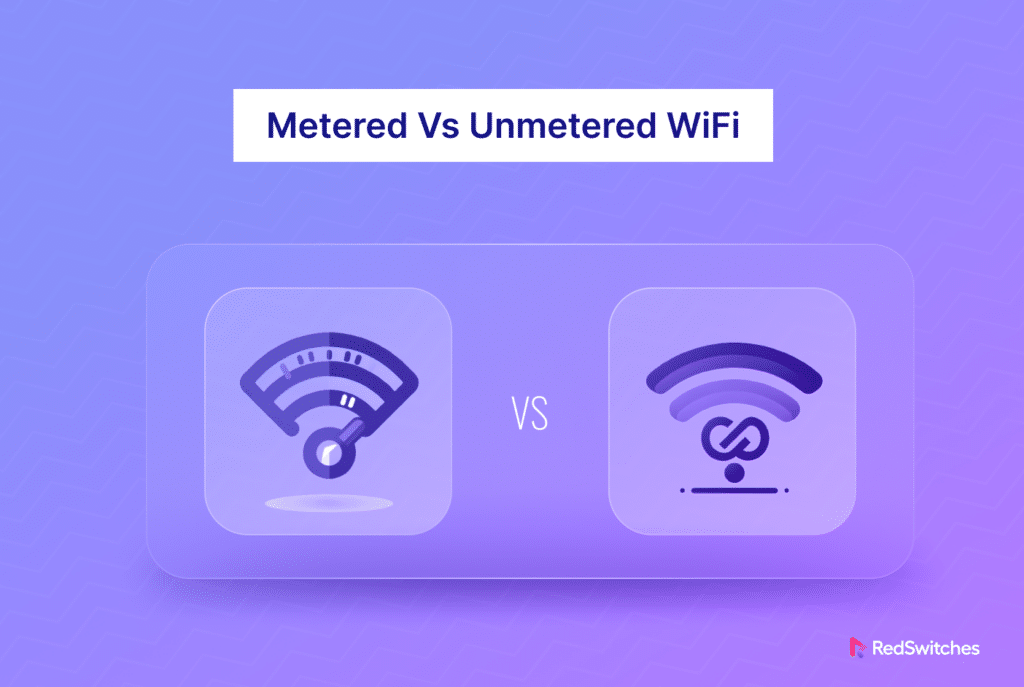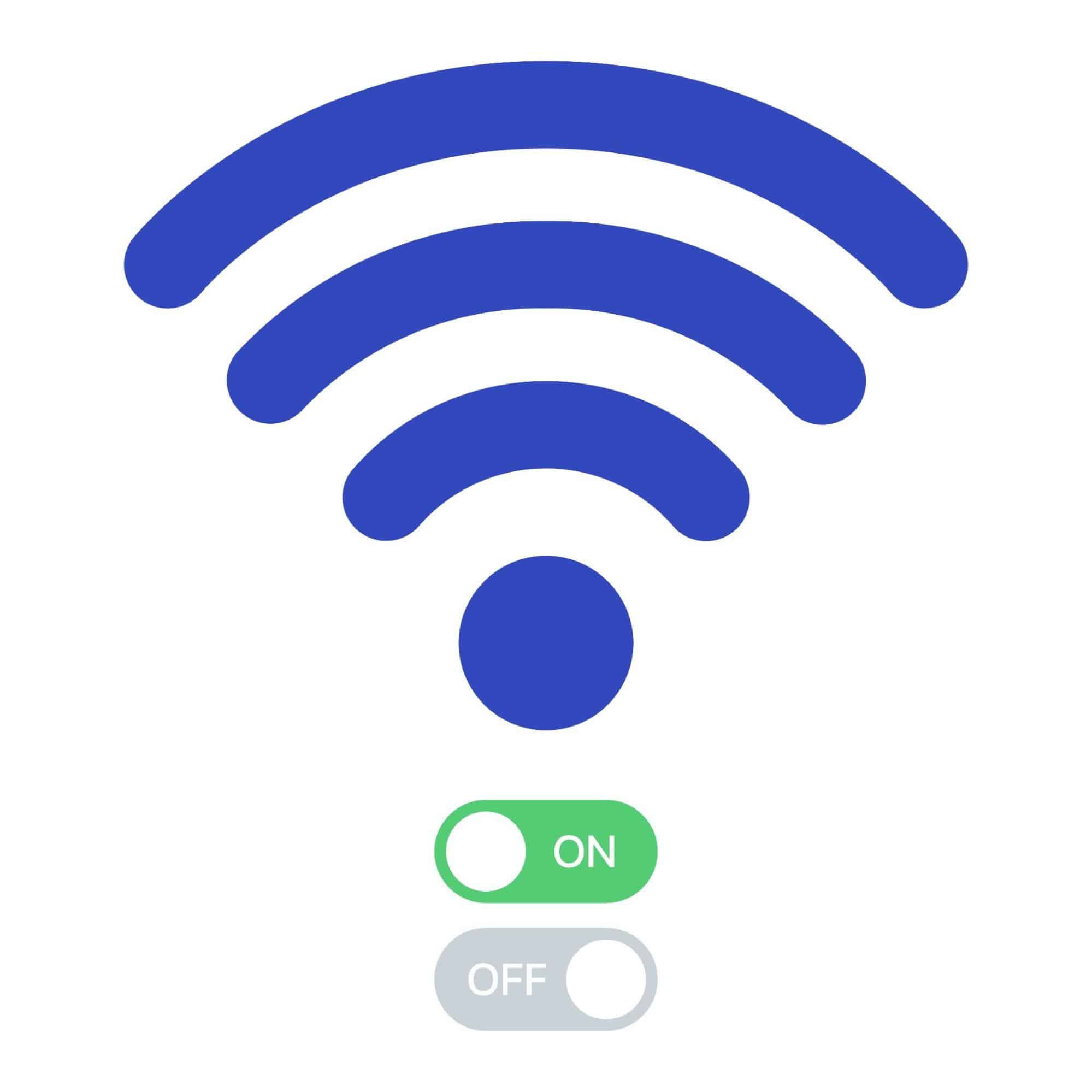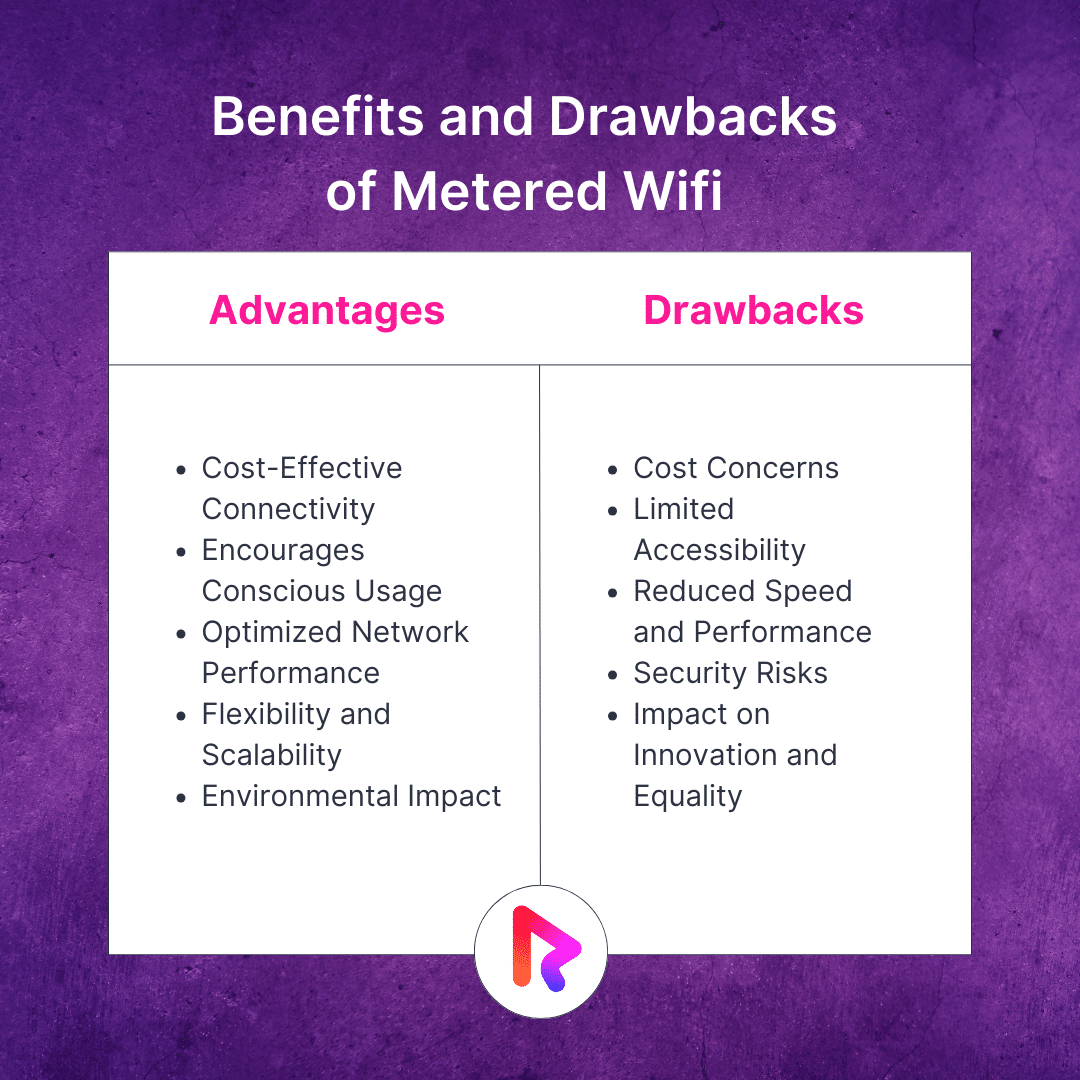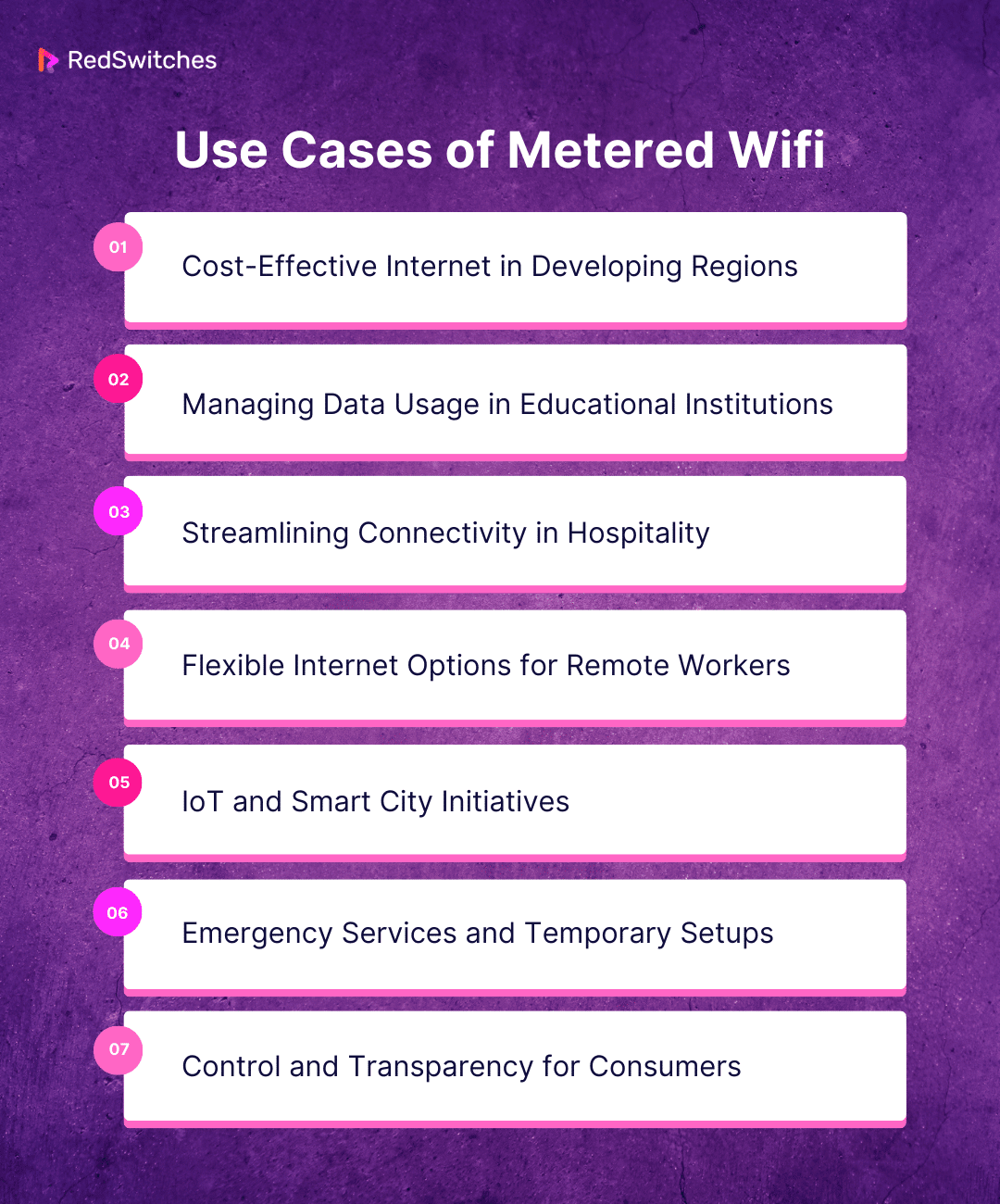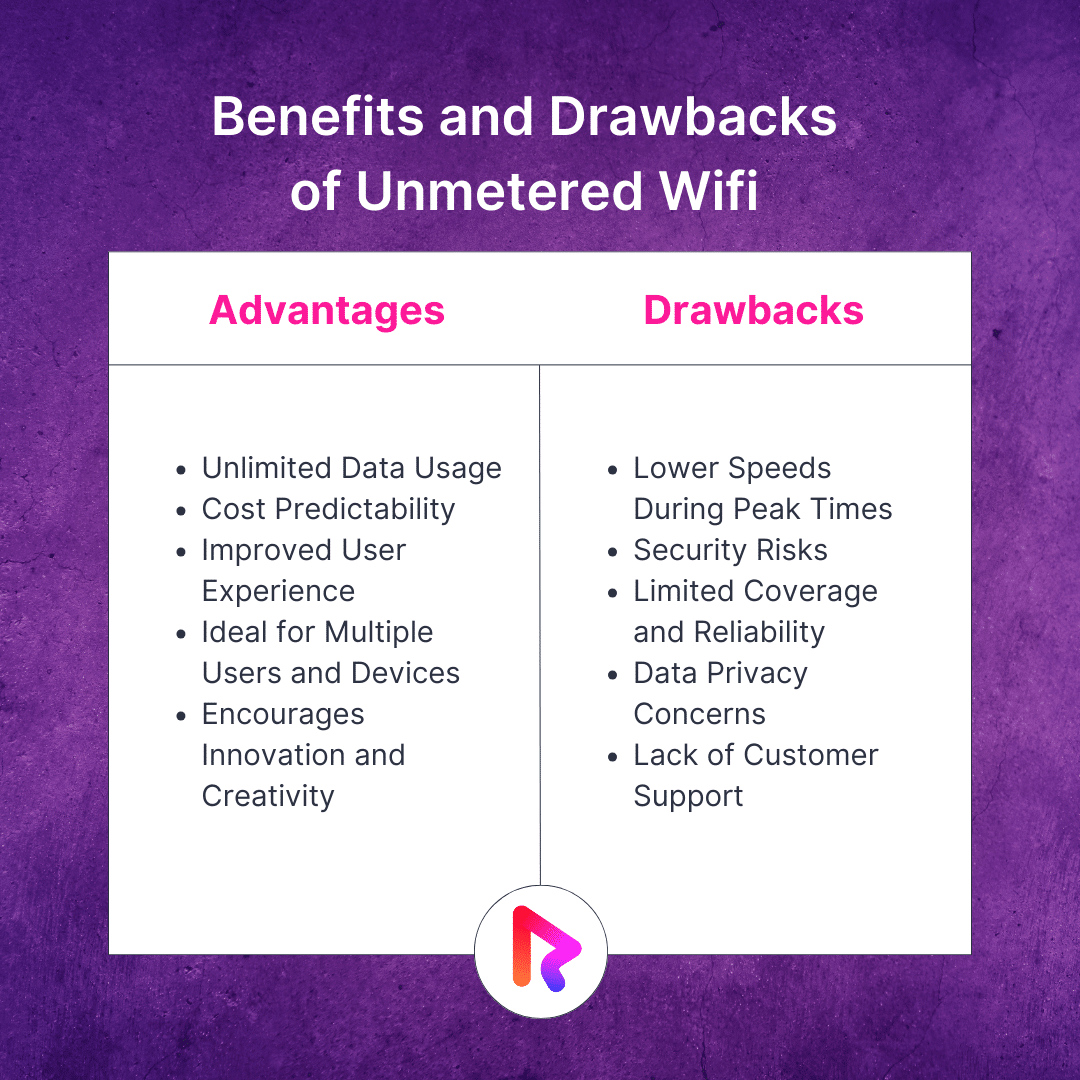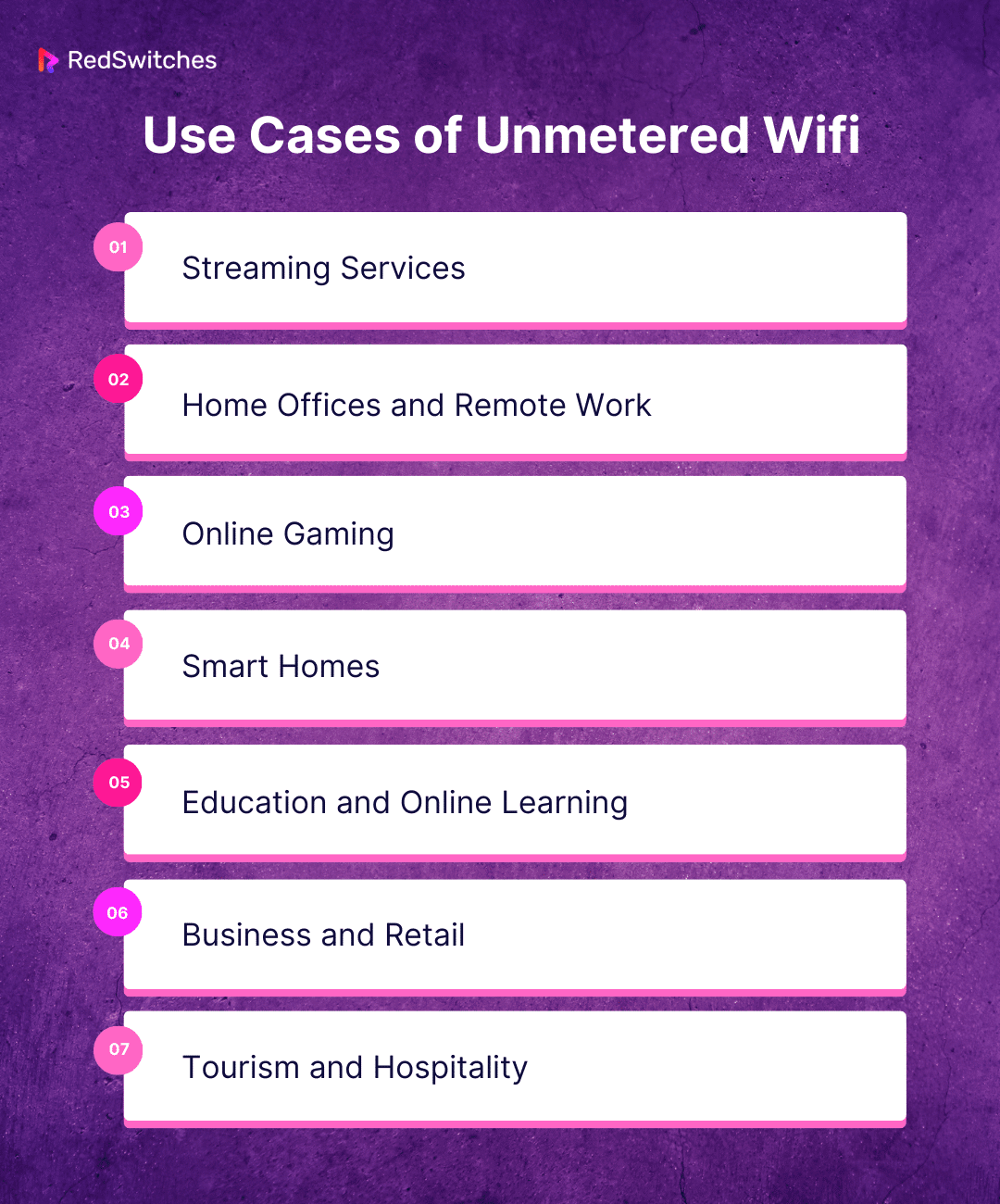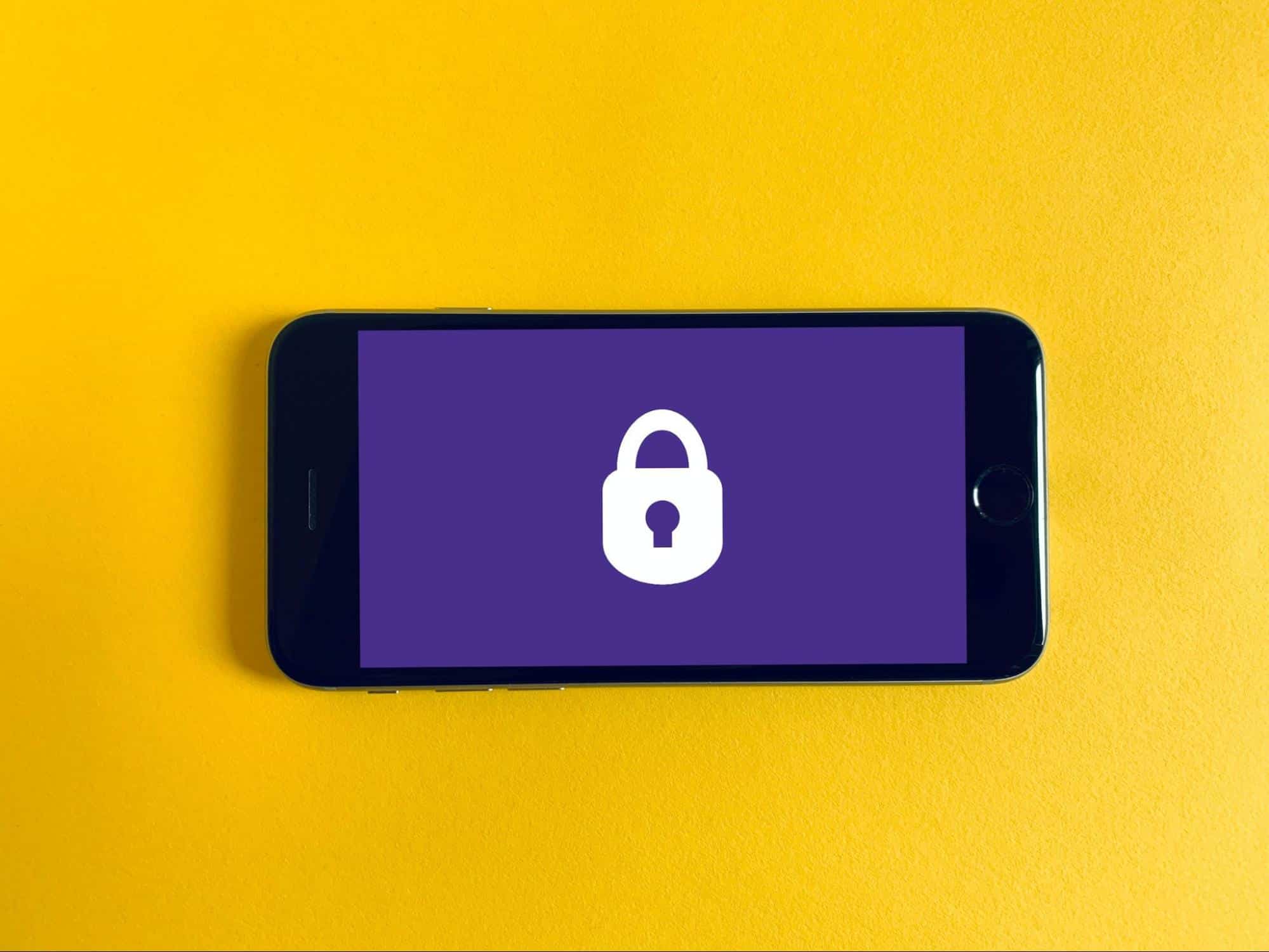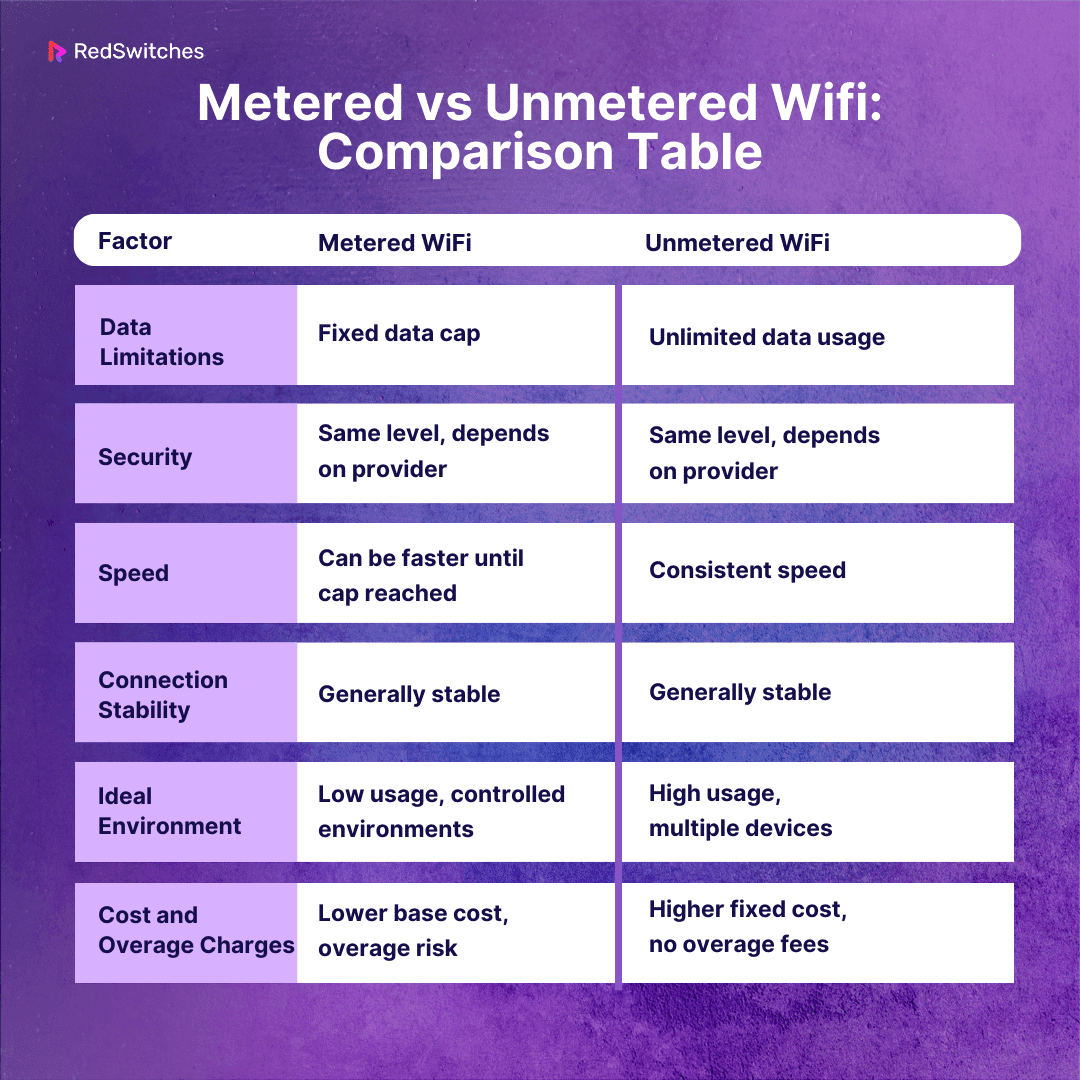Key Takeaways
- Metered wifi entails data usage restrictions, whereas unmetered wifi offers unlimited data usage.
- Metered wifi benefits include potential cost savings for light users.
- Metered wifi drawbacks include data limitations and potential speed throttling.
- Unmetered wifi provides unlimited data usage without overage charges but may come with higher upfront costs and potential network congestion.
- Metered wifi suits occasional or light internet users, while unmetered wifi is ideal for heavy data users or businesses with consistently high data demands.
- The difference between metered and unmetered wifi lies in data limitations, with metered wifi having restrictions and unmetered wifi offering unlimited data usage.
- Connection stability may be affected by data limitations in metered wifi.
- Unmetered wifi offers more stable connections due to unlimited data usage.
- Metered wifi may be suitable for controlled environments or light internet usage scenarios.
- Unmetered wifi is better suited for environments requiring consistent and heavy data usage.
When choosing a plan for Wifi, metered vs unmetered are the two choices most businesses and individuals are presented with today.
Wifi has evolved dramatically since its inception in 1997, becoming vital to our daily lives. With 5.3 billion internet users worldwide, it’s difficult to imagine that it’s been over a quarter of a century since the first version of wifi was released. Today, this technological marvel presents us with two options: metered vs unmetered Wi-Fi plans.
Each of these options caters to different user needs and consumption patterns.
The best way to decide which option is best for you is to compare metered vs unmetered wifi in-depth. This blog will compare the two types of Wi-Fi services, helping you understand which metered vs. unmetered Wi-Fi might best fit your internet usage habits and requirements.
Table of Contents
- Key Takeaways
- What Does Metered Wifi Mean?
- What Is Unmetered Wifi?
- Metered vs Unmetered Wifi: What is the Difference?
- Metered vs Unmetered Wifi: Comparison Table
- Future Trends in WiFi Connectivity
- Metered vs Unmetered Wifi: Which to Choose?
- Conclusion – Metered vs Unmetered Wifi
- FAQs
What Does Metered Wifi Mean?
Credits: FreePik
Before we discuss the comparison between metered vs unmetered Wifi, it is important to understand the individual definitions of both terms.
Metered WiFi refers to a WiFi network where data usage is tracked and potentially limited. Unlike unlimited WiFi plans, where you can use as much data as you want without additional charges, metered WiFi networks often have a cap on the amount of data you can use within a certain period.
Once you exceed this limit, you can incur extra charges or experience reduced speeds. Your Wifi provider may also temporarily suspend their services, depending on the terms of your plan.
This concept is prevalent in mobile data plans but can also apply to certain home or public WiFi networks. Metered connections are often used as a means for internet service providers to manage network traffic and reduce bandwidth congestion. For users, knowing that a WiFi connection is metered is important to avoid unexpected charges or service interruptions.
Operating systems like Windows allow users to set a network as metered. This can help control background data usage and limit data consumption by certain apps or services.
Are you confused between public vs private networks? Read our blog, ‘Difference Between Public Vs Private Networks.’
Benefits and Drawbacks of Metered Wifi
Below are the benefits and drawbacks of metered Wifi:
Benefits
Let’s discuss the benefits first.
Cost-Effective Connectivity
The most apparent benefit of metered WiFi is the potential for significant cost savings. For users with fluctuating or limited internet needs, paying for a flat-rate, unlimited plan can often be unnecessary.
Metered WiFi aligns cost with actual usage, ensuring that users don’t pay for bandwidth they don’t utilize. This model benefits small businesses or startups operating on tight budgets, where every penny saved on operational costs can be redirected toward growth and development.
Encourages Conscious Usage
Metered WiFi instills a sense of awareness and responsibility in usage patterns. When users know that their internet consumption directly impacts costs, they avoid unnecessary downloads and frivolous online activities. This can lead to more conscious and efficient internet usage.
This heightened awareness can also contribute to better cybersecurity practices as users become more cautious about the websites they visit and the files they download.
Optimized Network Performance
Another significant benefit of metered WiFi is the potential for improved network performance. In unlimited plans, heavy usage by a few users can lead to network congestion, impacting the internet speed for all users on the network.
Metered WiFi naturally discourages excessive use, reducing the likelihood of network congestion. This ensures a more stable internet speed for all users, which is crucial for businesses where consistent online connectivity is vital for operations.
Flexibility and Scalability
Metered WiFi offers unparalleled flexibility, allowing users to scale their internet usage up or down based on actual needs. This is especially beneficial for businesses with varying demands due to seasonal fluctuations. Instead of being locked into a costly annual plan, they can adjust their internet consumption – and costs – according to their peak and off-peak seasons.
Environmental Impact
Metered WiFi can also contribute to environmental sustainability on a broader scale. Discouraging unnecessary internet usage indirectly reduces the energy consumption associated with data processing and digital activities. As people become more conscious of the environmental impact of digital technology, metered WiFi presents a more sustainable option for connectivity.
Drawbacks
Now, let’s take a closer look at the drawbacks.
Cost Concerns
The most obvious drawback of metered Wi-Fi is the potential cost. Unlike flat-rate or unlimited plans, metered connections charge based on the amount of data used. This can quickly become expensive, especially for users who stream videos, download large files, or engage in other data-intensive activities. Keeping track of usage to avoid bill shock can be stressful and inconvenient, especially for those not tech-savvy.
Limited Accessibility
Metered Wi-Fi often places a usage cap, which can limit internet accessibility. Once you hit the data limit, you must either pay extra or wait until the next billing cycle. This restriction can be problematic for students, remote workers, or anyone relying on the Internet for critical tasks. Limited access can hinder productivity and be a significant obstacle in emergencies where internet access is crucial.
Reduced Speed and Performance
Many metered Wi-Fi services throttle internet speeds once a user reaches a certain data threshold. This means that even if you haven’t hit your data limit, your internet speed can significantly drop, affecting your online experience. Slow speeds can be frustrating and counterproductive, especially for activities demanding high bandwidth.
Security Risks
Metered Wi-Fi networks, especially public ones, often lack robust security measures. This can expose users to cyber threats, including hacking, identity theft, and data breaches. While this concerns public Wi-Fi, the risk becomes more pronounced with metered services, where users may be less aware of security protocols and more focused on limiting their usage.
Impact on Innovation and Equality
From a broader perspective, metered Wi-Fi can affect digital innovation and equality. Restricting data usage limits users’ ability to explore new online tools and technologies, which is essential for innovation. Metered connections can also widen the digital divide. This disproportionately affects lower-income individuals who might not afford higher data plans, thus hindering their access to essential online resources.
Also Read: How Does A VPN Work? A Breakdown Of 4 Crucial Aspects.
Use Cases of Metered Wifi
Below are the top use cases of metered Wifi:
-
Cost-Effective Internet in Developing Regions
The cost of internet access can be prohibitively high in developing countries. Metered WiFi offers a more affordable alternative. Users can pay for only the data they need, making internet access more accessible to lower-income populations. This approach can significantly increase digital inclusion, allowing more people to access online education, health services, and e-commerce.
-
Managing Data Usage in Educational Institutions
Educational institutions often struggle with bandwidth issues due to the high volume of users. Metered WiFi can be an effective solution, encouraging students to use the internet more responsibly. By paying for their data, students will likely prioritize educational content over entertainment, leading to more efficient use of institutional resources.
-
Streamlining Connectivity in Hospitality
Hotels and resorts can benefit from metered WiFi by offering tiered access to guests. Basic browsing could be free, while high-bandwidth activities like streaming or downloading could be metered. This system ensures fair usage of the network and opens up an additional revenue stream for the hospitality industry.
-
Flexible Internet Options for Remote Workers
Credits: FreePik
With the rise of remote work, metered WiFi can provide a flexible solution for those who do not require constant internet access. It’s ideal for freelancers or part-time remote workers who can control their internet costs by paying only for the data they use instead of a regular monthly fee for unlimited access.
-
IoT and Smart City Initiatives
In smart city projects, where numerous devices are constantly connected, metered WiFi can help manage and allocate bandwidth effectively. Internet of Things (IoT) devices often transmit small amounts of data, and metered connections ensure that costs are kept in line with actual usage, making smart city initiatives more sustainable.
-
Emergency Services and Temporary Setups
During emergencies or in temporary event setups, metered WiFi can provide immediate, pay-as-you-go internet access. This flexibility is crucial when establishing a permanent internet connection is impractical or too time-consuming.
-
Control and Transparency for Consumers
Metered WiFi gives consumers greater control and transparency over their internet usage and costs. This greatly benefits those with limited internet needs or who are budget-conscious. Users can monitor their consumption and adjust their usage patterns accordingly.
What Is Unmetered Wifi?
Unmetered WiFi is an Internet service where the Internet Service Provider (ISP) does not measure or limit data usage. It allows users to access unlimited data at no additional cost beyond the fixed subscription fee. This is in contrast to metered WiFi services, where the data usage is tracked, and users may be charged extra if they exceed a certain data limit, or their internet speed may be throttled after reaching this limit.
Unmetered WiFi is highly appealing to users who consume large amounts of data. This includes users who stream high-definition videos, indulge in online gaming, or download large files frequently. It offers the freedom to use the internet extensively without worrying about incurring additional charges or experiencing a drop in service quality due to data caps.
This makes it an attractive option for households and businesses that require a constant, high-volume internet connection. However, even with unmetered plans, it’s important to be aware of the ISP’s fair usage policy, as extreme usage can sometimes lead to service limitations to ensure network quality for all users.
Also Read: 17 Best Penetration Testing Tools For Security Testing.
Benefits and Drawbacks of Unmetered Wifi
Below are the benefits and drawbacks of unmetered Wifi:
Benefits
Lets discuss the benefits of Unmetered wifi in detail first.
Unlimited Data Usage
The most apparent advantage of unmetered WiFi is unlimited data usage. This is particularly beneficial for heavy internet users. Whether streaming high-definition movies, downloading large files, or playing online games, you don’t have to worry about hitting a data cap. This freedom allows for a more enjoyable and uninterrupted online experience.
Cost Predictability
With unmetered WiFi, you pay a fixed monthly fee regardless of how much data you use. This predictability in cost is a significant benefit, especially for budget-conscious households or businesses. You won’t face any nasty surprises in the form of excess data charges, which can often be exorbitant.
Improved User Experience
Unmetered WiFi often comes with higher bandwidth, offering faster internet speeds. This enhances the overall user experience, as you can enjoy smoother streaming, faster downloads, and more responsive online gaming. This efficiency is invaluable in a world where time is of the essence.
Ideal for Multiple Users and Devices
In a typical household or office, multiple devices are connected to the internet simultaneously. Unmetered WiFi is ideal in these scenarios, as it can handle multiple connections without compromising speed or performance. This is crucial in today’s standard home setups where smart TVs, smartphones, tablets, and laptops are all vying for bandwidth.
Encourages Innovation and Creativity
Unmetered WiFi fosters an environment where users feel free to explore, create, and innovate online without the constraints of data limitations. This benefits content creators, tech developers, and digital entrepreneurs relying on uninterrupted internet access to experiment and develop new ideas.
Drawbacks
Now let’s discuss the drawbacks.
Lower Speeds During Peak Times
Unmetered WiFi often means shared bandwidth. During peak usage hours, you may experience significant slowdowns as more users connect to the same network. This can be problematic for activities requiring high bandwidth, such as streaming, gaming, or video conferencing. The shared nature of the network can lead to congestion, resulting in lower speeds and inconsistent performance.
Security Risks
Public or semi-public unmetered WiFi networks can pose security risks. These networks are often less secure than private, metered connections, making them more vulnerable to cyber threats like hacking, eavesdropping, or malware attacks. Users on these networks should be cautious about transmitting sensitive information, such as passwords or credit card details.
Limited Coverage and Reliability
The availability and reliability of unmetered WiFi can vary greatly depending on location. Coverage can be spotty or non-existent in some areas, mainly rural or less developed regions. The connection quality can be inconsistent in urban areas, with frequent dropouts and connectivity issues.
Data Privacy Concerns
Free, unmetered WiFi providers often collect data about user activities. This information can be used for various purposes, such as targeted advertising or analytics. Users who are particularly sensitive about their data privacy might find this aspect intrusive. It’s crucial to read the terms and conditions of the WiFi service to understand what data is being collected and how it is used.
Lack of Customer Support
Unlike paid, metered services, unmetered WiFi networks often have limited or no customer support. If you encounter issues or disruptions, you may have difficulty getting assistance. This lack of support can be a significant inconvenience, especially for those who rely on a stable internet connection for work or important communications.
Use Cases of Unmetered Wifi
Below are the use cases of unmetered Wifi:
Streaming Services
Unmetered WiFi is ideal for individuals who like streaming services like Netflix, Amazon Prime, and Hulu. With no data limits, users can enjoy endless movies, TV shows, and music streaming without worrying about exhausting their data allocation or suffering reduced speeds.
Home Offices and Remote Work
The rise of remote work has made reliable internet necessary. Unmetered WiFi ensures that professionals working from home have uninterrupted access to online resources, video conferencing, and large file transfers, all without the stress of monitoring data usage.
Online Gaming
Unmetered WiFi is essential for gaming enthusiasts. Online gaming requires a stable and fast internet connection for seamless gameplay, especially in multiplayer environments. Unmetered WiFi eliminates lag and connectivity issues, enhancing the gaming experience.
Smart Homes
Smart homes rely heavily on constant internet connectivity with devices like smart thermostats, lights, and security cameras. Unmetered WiFi provides a consistent and reliable network that ensures all smart devices function effectively and in harmony.
Education and Online Learning
The shift towards online education requires students and educators to have access to reliable Internet. Unmetered WiFi facilitates uninterrupted access to educational resources, virtual classrooms, and online libraries, making it a critical tool for learning and teaching.
Business and Retail
Unmetered WiFi allows businesses to continuously operate cloud-based services, POS systems, and customer service platforms. Retailers can leverage unmetered WiFi for inventory management, online sales, and customer WiFi access.
Tourism and Hospitality
Offering unmetered WiFi to guests has become necessary for the tourism and hospitality industry. Hotels, cafes, and tourist spots with unmetered WiFi attract more visitors, allowing travelers to stay connected, share experiences online, and plan their trips more effectively.
Also Read: 5+ Key Differences Between Fog Computing VS Cloud Computing.
Metered vs Unmetered Wifi: What is the Difference?
Below are the key distinctions between metered vs unmetered Wifi:
Metered vs Unmetered Wifi: Data Limitations
Metered WiFi puts a strict cap on data usage, while unmetered WiFi offers more freedom.
Metered Wifi
Your internet usage is measured in a metered WiFi setup, and you may have a cap on how much data you can use. Exceeding this cap can result in additional charges, reduced internet speeds, or a temporary halt in service. This model is common in mobile data plans or certain broadband services where users pay per gigabyte of data used.
Unmetered Wifi
Unmetered WiFi does not track the amount of data you use. There are no caps on usage, meaning you can use the internet extensively without worrying about overage fees or reduced speeds. This approach is often found in home broadband plans where users pay a fixed monthly fee for unlimited internet access.
Metered vs Unmetered Wifi Security
Credits: Unsplash
Let’s discuss the security difference between unmetered and metered wifi.
Metered Wifi
The security of metered WiFi depends on the service provider and the user’s practices. Since usage is tracked, there’s an inherent need for robust data protection and privacy measures to protect user information. Users are also encouraged to employ security measures like strong passwords and VPNs.
Unmetered Wifi
Similarly, the security in unmetered WiFi setups relies on the service provider and user. While there’s no specific link between unmetered usage and increased security risks, the same general internet safety practices apply. Users should maintain good security practices, regardless of whether their WiFi is metered or unmetered.
Metered vs Unmetered Wifi Speed
Metered WiFi can experience speed restrictions once you reach your data limit, whereas unmetered WiFi will maintain consistent speeds.
Metered Wifi
The speed for metered WiFi doesn’t differ from unmetered WiFi. Metered connections mean that your data usage is tracked, and you are either billed based on the amount of data you use or subjected to a data cap. The speed can be high, but users are more conscious of how much data they use, as exceeding the limit could result in additional charges or throttled speeds.
Unmetered Wifi
There’s no data limit on unmetered Wi-Fi. This does not necessarily mean that the speed is faster than metered Wi-Fi. It implies that users can use high-speed internet without worrying about data caps or additional charges for excessive usage.
In some cases, especially with high-quality service providers, unmetered WiFi can offer consistently high speeds since providers may prioritize infrastructure to support heavy usage.
Metered vs Unmetered Wifi: Connection Stability
Let’s discuss the difference between unmetered and metered wifi in regards of connection stability.
Metered Wifi
The stability of a metered Wifi connection can vary. It often depends on the service provider and the plan chosen. Some metered connections may experience reduced speed once the data cap is reached, affecting stability and performance. Sometimes, the connection might be stable until the data cap is hit, after which significant throttling can impact the connection quality.
Unmetered Wifi
Unmetered Wi-Fi typically offers more consistent and stable connection quality, as no data caps affect the speed. However, overall stability still depends on the ISP, the quality of the infrastructure, and network traffic. Unmetered connections are generally less likely to experience speed fluctuations due to data usage, making them more stable for continuous, high-bandwidth activities.
Metered vs Unmetered Wifi: Ideal Environment
Metered WiFi is often ideal for home use where you control usage, while unmetered WiFi can be advantageous in places with heavy usage.
Metered Wifi
Metered WiFi is a system where internet usage is tracked and charged based on the data used. This environment is best suited for locations where internet usage is sporadic or predictable and where controlling costs is a priority. It’s ideal for individual users or small businesses who are mindful of their data usage and want to avoid the high costs of exceeding data limits.
Metered WiFi environments can be found in settings where users are expected to be conscious of their data consumption, such as in some hotels, airports, or limited-access public areas.
Unmetered Wifi
Unmetered WiFi offers unlimited data usage for a fixed cost. This is perfect for environments where heavy and continuous internet usage is the norm, such as in tech companies, startups, co-working spaces, and educational institutions. It’s also ideal in households with multiple devices connected simultaneously.
In these environments, the predictability of costs and the absence of data caps ensure that users can freely use the internet without worrying about exceeding limits or incurring additional charges.
Metered vs Unmetered Wifi: Cost and Overage Charges
Credits: Pexels
Metered WiFi plans have a fixed data cost, but unmetered WiFi could result in unexpected charges.
Metered Wifi
Metered WiFi plans involve paying for a specific amount of data usage. These plans are typically more cost-effective for users with lower internet consumption. However, the primary downside is the potential for overage charges.
Users exceeding their allotted data limit can incur significant additional costs, making this option less suitable for those with high data usage or unpredictable internet needs.
Unmetered Wifi
Unmetered WiFi offers unlimited data usage for a fixed monthly fee. This makes it ideal for heavy internet users or households with multiple devices. This eliminates the worry of overage charges, offering peace of mind and predictability in billing.
While generally more expensive than metered plans, the value is evident for users who require consistent, high-volume internet access without fearing extra charges for exceeding data limits.
Metered vs Unmetered Wifi: Comparison Table
Below is a brief comparison table of metered vs unmetered Wifi:
Future Trends in WiFi Connectivity
WiFi connectivity will become more ubiquitous and efficient in the coming years. The advent of 5G technology and the continuous improvement of WiFi standards (like WiFi 6 and beyond) are set to offer faster speeds and more reliable connections. The concept of metered and unmetered WiFi may evolve with these advancements, potentially leading to more personalized and flexible internet plans catering to users’ varied needs.
Integrating IoT devices and smart home technology will further drive the need for robust and uninterrupted internet connectivity. This will potentially make unmetered plans more popular.
Also Read: VPS Vs VPN: Understand The Differences In 10 Minutes.
Metered vs Unmetered Wifi: Which to Choose?
Although the above differences between metered vs unmetered Wifi can offer valuable insight into which is best for you, it is common to feel still confused. Below are a few factors to consider to make an informed decision between metered vs unmetered Wifi:
- For Limited Use: A metered plan could save you money if your internet usage is low to moderate and predictable. It’s ideal for individuals or households primarily using the internet for light activities like browsing and emailing.
- For Heavy Use: If you’re a heavy internet user, have a large family, or manage a business with high data needs, an unmetered plan is a safer bet to avoid unexpected charges. This option is especially beneficial for streaming, online gaming, and frequent large downloads, ensuring that high usage doesn’t incur additional costs.
- Cost vs. Convenience: Metered plans often cost less but require careful data usage management. Unmetered plans cost more but offer convenience and predictability. This choice depends on whether you prefer saving money with more attention to usage or paying a premium for unlimited access without monitoring consumption.
Conclusion – Metered vs Unmetered Wifi
The choice between metered vs unmetered WiFi ultimately depends on your internet usage, budget, and lifestyle needs. Metered WiFi can be cost-effective for those with predictable and lower internet usage. Unmetered WiFi is ideal for heavy users who wish to pay a fixed monthly cost without worrying about overage charges. Ensuring the right WiFi plan becomes more crucial as the world grows increasingly interconnected.
RedSwitches offers various services that cater to a wide range of connectivity needs. for those looking to discover trustworthy internet solutions. We can provide the expertise and support to guide you in choosing between metered vs unmetered Wifi. Visit our site now to discover how they can help you stay effortlessly connected in a world where WiFi is no longer just a luxury but a necessity.
FAQs
Q. Which is better, metered or unmetered Wi-Fi?
The choice between metered vs unmetered Wi-Fi depends on your usage and needs. Metered Wi-Fi is cost-effective for users with predictable, low to moderate internet usage, while unmetered Wi-Fi is ideal for heavy data users or households with multiple devices, offering unlimited data without overage charges.
Q. Should metered connection be on or off?
Turning on the metered connection setting is advisable if you have a limited data plan, as it helps to control background data usage and avoid excess charges. Keeping the metered connection off is generally acceptable if you have an unlimited data plan or are not concerned about data limits.
Q. What is metered and unmetered Wi-Fi on Android?
A metered Wi-Fi network on Android devices means the device will treat the connection as having limited data, optimizing data usage by restricting background tasks and updates. Conversely, an unmetered Wi-Fi connection indicates no data restrictions, allowing the device to use data freely for updates, syncing, and other background activities.
Q. Does unmetered connection affect speed?
An unmetered connection does not affect internet speed. It simply refers to the absence of data usage limits. Your internet speed will depend on the quality of your service provider, your plan’s bandwidth, and network conditions, regardless of whether the connection is metered or unmetered.
Q. What is the difference between metered and unmetered wifi?
Metered wifi restricts the amount of data you can use per month whereas unmetered wifi offers unlimited data usage.
Q. What does metered bandwidth mean?
Metered bandwidth refers to internet usage where you are charged based on the amount of data you consume.
Q. How is unmetered bandwidth different from unlimited bandwidth?
Unmetered bandwidth means no restrictions on data usage, while unlimited bandwidth typically means there are restrictions but at very high levels.
Q. How can I set up metered and unmetered wifi networks?
You can set up metered and unmetered wifi networks in your device settings by specifying your connection type.
Q. Is Windows 10 capable of detecting and switching to a metered network?
Yes, Windows 10 can detect metered networks and optimize data usage accordingly.
Q. How does bandwidth usage differ between metered and unmetered networks?
Bandwidth usage on metered networks is limited and may incur extra charges for exceeding data limits, while unmetered networks allow unlimited data usage without additional costs.
